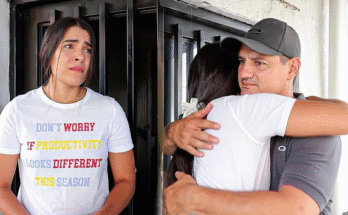Mr. Holloway was the kind of boss who never smiled unless he was mocking someone. To him, leadership meant fear, not respect. His voice was sharp, his suits expensive, and his ego even more polished than his shoes.
And his favorite target? Leo—the quiet, soft-spoken junior analyst who kept his head down and his work flawless.
To Holloway, Leo was weak. Meek. Easy to belittle in meetings, especially in front of clients or colleagues.

“Try not to bore everyone, Leo,” he’d say with a smirk during presentations. Or, “Maybe next time use actual data, not whatever you dreamed up last night.”
Leo would just nod, take the insult, and keep working. Day after day.
What Holloway didn’t know was that Leo had built a revolutionary forecasting model on his own time—a model so accurate and advanced that it quietly caught the attention of a major competitor, one who had seen Leo’s published work in a niche analytics journal.
Still, Leo stayed. Loyal. Hopeful. Until one day, in front of the entire boardroom, Holloway snapped.
“This is garbage,” Holloway growled, tossing Leo’s detailed quarterly report onto the table. “I should have fired you months ago.”
There was silence. Leo’s face turned red, but he said nothing.
The next morning, Leo handed in his resignation.
Holloway didn’t even blink. “Don’t let the door hit you on the way out.”
Two months later, Holloway entered a major pitch meeting with a potential billion-dollar client—his company’s chance to expand globally. But when he arrived, he saw something that turned his stomach:
Leo. Standing confidently at the head of the table, wearing a sleek suit and holding a clicker.
“I’m Leo Ramos,” he began, “head of analytics at Videra Global. Today, I’ll show you the technology we developed—tech I started designing while working under my previous employer.”
Holloway’s jaw tightened.
Leo continued, poised and brilliant. His model predicted trends with 94% accuracy, helping businesses avoid loss and boost growth dramatically. The client was stunned—in the best way.
After the meeting, Holloway cornered Leo.
“You didn’t tell anyone you were developing that.”
“No,” Leo said calmly. “You never asked. You only shouted.”
“You’re really just going to walk away and compete against us?”
“I didn’t walk away, Mr. Holloway. You pushed me out.”
Then he added, without a hint of anger, “And for that, I thank you.”
Weeks later, Videra Global secured the client. Holloway’s company suffered its worst quarterly loss in five years.
The board began asking questions.
Holloway had no answers—only a bitter taste of his own arrogance.
Meanwhile, Leo thrived. Not out of revenge, but because he finally found a place where talent was valued, not trampled.
And Holloway?
He finally learned what real leadership looked like—by watching the man he once humiliated rise higher than he ever imagined.
Would you like a version where Holloway tries to redeem himself—or a version where Leo returns to help his former coworkers?
